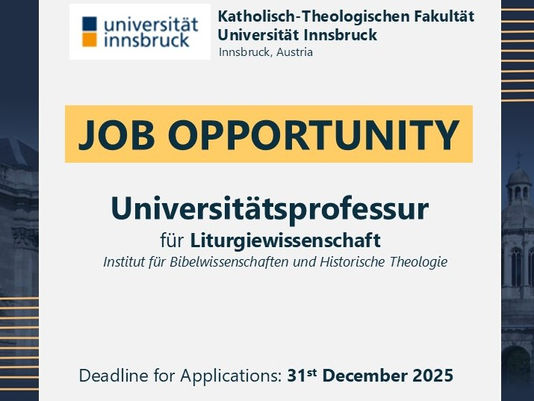INSeCT held their 2024 General Assembly in Rome
- nevenvukic
- Jun 21, 2025
- 4 min read
Updated: Jun 22, 2025

DAY 1: December 8, 2024
On the first day of the General Assembly, coordinators, presidents, and representatives from member theological societies gathered at Domus Internationalis Paulus VI. INSeCT President Ruben Mendoza formally welcomed everyone, emphasizing that beyond updates and planning for the network’s future, the decision to hold the Assembly in Rome aimed to elevate INSeCT’s profile. The session also included reflections from Maeve Heaney and Judith Gruber on the Board’s audience with Pope Francis in May 2024.

DAY 2-3: December 9-10, 2024
From December 9-10, participants of the INSeCT General Assembly took part in the International Congress, The Future of Theology: Legacy and Envisioning, organized by the Dicastery for Culture and Education at the Pontifical Lateran University.

DAY 4: December 11, 2024
The participants gathered at the Brazilian Embassy in the Vatican to reflect on the implications of the International Congress for INSeCT and the work of theological societies and associations. The participants engaged in small group discussions, reflecting on their experiences of the Congress. Their discussions were guided by the following questions:
How was my experience of the Congress?
What insights and reflection points did I learn from the Congress?
Did the congress inform or reshape our understanding of InSECT and its strategic priorities and collaborative projects within our network? If yes, how so?
What commitments or resolutions can we make to foster more meaningful theological contributions to contemporary issues in society and the Church from INSeCT and our organizations, given the points raised at the Congress?
The experiences and insights gained from the International Congress provide several ideas for INSeCT to further strengthen its role as a global network of theological societies. One is the importance of thinking together and doing theology together, embracing the complexities and diversities that come with being a global organization. This requires ensuring that representatives from the executive leadership of member societies are actively involved in meetings, enabling them to contribute to decision-making processes that will directly benefit their societies. Strategic planning is necessary to ensure continuity and coherence within the network, particularly in the representation of different theological societies. Additionally, INSeCT must deepen its understanding of its identity and potential—who it is as a network and what it can become. While dialogue with Rome remains valuable, the network must also prioritize fostering meaningful exchanges among different theological societies, ensuring that diverse theological voices are brought into conversation with one another. Moreover, INSeCT must model the diversity of dialogical methods it advocates for, demonstrating how theology is done across various contexts and perspectives.
In the evening, INSeCT visited the Australian Embassy to the Holy See, where they were hosted for a gathering with several diplomats from the countries of INSeCT participants. They were welcomed by Charge Marcus Wu. Maeve Heaney shared the objective of holding the General Assembly in Rome—to raise the profile of INSeCT. She also mentioned their papal audience with the Holy Father in May 2024. Ruben Mendoza briefly discussed the identity of INSeCT and the work the network is doing, including its current project on decolonizing theologies.
DAY 5: December 12, 2024
The INSeCT participants gathered at the Australian Catholic University Rome Campus for the fifth day of the General Assembly to discuss the amendments to the statutes/constitution and the different research projects done by the theological societies, and to elect the new officers and members of the Board. Maeve Heaney led the meeting where the group discussed and voted on various proposals. The voting process required a two-thirds majority, and each society was allowed to have one representative vote.
Participants were grouped by region for consultations and the selection of their local representatives. The newly elected regional representatives who will serve on INSeCT’s Board are as follows:
1. Africa: Jean Bonzo Kouassi (CREPTI)
2. Asia-Pacific: Stephanie Ann Puen (EWA)
3. Europe: Kovacs Gusztav (ESCT)
4. North America: Linh Hoang (CTSA)
5. South America: Isabel Corpas de Posada (ACT)
The Board decided that the following will be the new officers of INSeCT, a decision that was ratified by the General Assembly:
President: Linh Hoang
Vice President: Kovacs Gusztav
Treasurer: Stephanie Ann Puen
The outgoing president, Ruben C. Mendoza, remains as an advisor to the Board.

The regional groups also gathered to discuss the various themes and insights related to decolonization and theological research. A representative per region presented their work during the plenary session.
DAY 6: December 13, 2024
The participants reconvened at the Brazilian Embassy to the Holy See on the final day of the General Assembly. The objectives of the meeting were to present the network’s research project, “A People of All Nations: Decolonizing Theologies— Decolonizing the World,” and to begin discussions on the next research agenda. Ruben Mendoza shared that INSeCT organized two online lecture series under the theme “Decolonizing Theologies, Decolonizing the World,” held on October 12, 2022, and April 25/26, 2023, respectively. INSeCT also facilitated a twin conference with the theme “De/colonizing Theologies: Glocal Histories, Contemporary Challenges,” held from March 27–30, 2023. This event marked the third edition in a series of theological encounters between Asia and Europe. As a twin conference, it was conducted in two locations—KU Leuven in Belgium and Ateneo de Manila University in the Philippines. A publication will be released as a result of the twin conference, featuring papers and key insights from the sessions held at KU Leuven and Ateneo de Manila University. This forthcoming volume aims to further deepen the dialogue on de/colonizing theologies across diverse contexts.
The group engaged in a rich and dynamic discussion on possible research themes for the next three years. Key themes, topics, and suggestions that emerged include continuing the work on decolonial theology; responding to Pope Francis’ challenge at the International Congress to “rethink how to think”; exploring themes of disruption, interruption, and reconstruction; reevaluating theology’s relevance; and identifying the practical goals of theology. After the General Assembly, the Board continued the discussion through email exchanges, reviewing the notes and identifying three possible research themes:
The Future of Theology: Re-Imagining Decoloniality, Dialogue, and Doctrine
The Future of Theology: Disrupting the Past and Generating a New Vision
The Future of Theology: Interruption and Disruption in Doing Theology
The General Assembly participants were asked to give their input and choose from the three options. After collecting the responses and tabulating the results, the network decided to have this as their research agenda/theme for the next three years:
The Future of Theology: Disrupting the Past and Generating a New Vision
Attached is the full report of the 2024 General Assembly:



















![The Prophetic Voices of Women (Statement of the Indian Women Theologians Forum [IWTF] Meeting 2025)](https://static.wixstatic.com/media/28387e_275b1a8a5d664dfb8edfb0f70849c28c~mv2.jpg/v1/fill/w_980,h_735,al_c,q_85,usm_0.66_1.00_0.01,enc_avif,quality_auto/28387e_275b1a8a5d664dfb8edfb0f70849c28c~mv2.jpg)























Comments